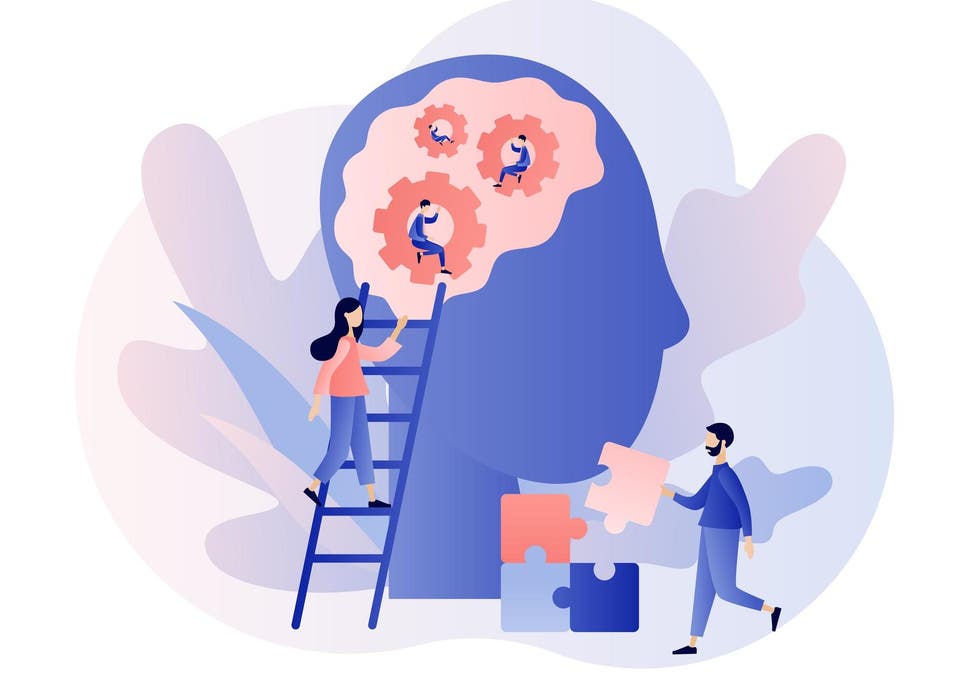There are many myths and misconceptions that surround therapy. As a profession that has some stigma around it, the mental health field has been constantly undervalued. However, the Mental Health field is slowly growing as many more people are growing aware of mental distress. Many of them are accepting that mental distress is real; and that it’s time to have these conversations. But with having conversations around distress, comes along some myths that need to be constantly debunked. While mental health advocates and practitioners are working towards destigmatizing this, some stereotypical notions still remain. Everyone has come across a lot of myths about therapy, so we’re here to debunk these myths!

#1. You only go to therapy when things get bad!
This myth has stopped people from reaching out to take help when they felt like they needed it but couldn’t because they thought the situation isn’t as dire yet. This is not true. Waiting for things to be worse will cause more distress and will take longer to heal. We encourage you to take help as soon as you can. This myth also perpetuates the idea that one only goes to therapy if there’s a problem. This is also a very harmful way to look at therapy and blocks many people from actively seeking help. Therapy is not confined to only listening to problems and conflicts but is also a great way to grow and reflect on oneself. One of the most amazing therapists of all time, Victor Yalom in fact says “Therapy is too good to be offered only the the sick”.
#2. Therapists evaluate you.

When therapists make note of what you’re saying, they are not evaluating you. They do not write down what they think of you, but instead they write down what you say. The sessions are usually for more than forty-five minutes, and a lot of things are said in one session. To not lose track of what the client is saying, therapists take notes. This is so that they can refer to the sessions in supervision, or to sit with peoples experiences later in order to be present more centrally. In fact, you can ask them to show you the notes!
#3. Anyone can be a counselor
Truth is, anyone can be a counselor IF, and WHEN they take the training for it. Mental Health counselors and therapists usually complete a bachelor’s degree and get a Post-graduate diploma in counselling or pursue a master’s degree in Psychology. To be a counselor is a process that requires training and education. Anyone who is just a good listener cannot be a therapist by virtue of that one trait. There’s more to counselling than listening. It’s about reflecting and helping the client grow. People don’t take counselling seriously because they feel that they can counsel their friends/relatives themselves and make them ‘happy.’
#4. Therapists don’t cry!
Sometimes peoples experiences of pain moves us. As someone who is not living the complexity of a life the people we consult with hold, therapists are able to witness and pick up on the pain that envelopes a persons experience. Emotions that people are experiencing and that a therapist is reflecting are the very important pieces of life’s work that need to be witnessed and held up for gentle presence. Therapy work is emotion work and emotions bring up tears. Therapists don’t align with stories of “tears as weak”. People’s joys and wins also tears us up!
#5. I don’t want to pay to feel understood. All I want are good friends!
Therapy is a process of understanding oneself, in a way where we discover and explore our experiences and hopes-in a safe space where the therapist can facilitate this, which isn’t the same as having friends understand us.
Therapy is a process. It’s a constant process of growth, retrospection, inspection and reflection. Healing comes in many ways. Holding space for you, to witness and facilitate your hopes and preferred spaces is the work of therapy.
We hope this has helped you look at therapy in a different light and that with debunking these myths, you are more open to the idea of therapy. To book a session with us, DM us on Instagram or on 9490708947.
